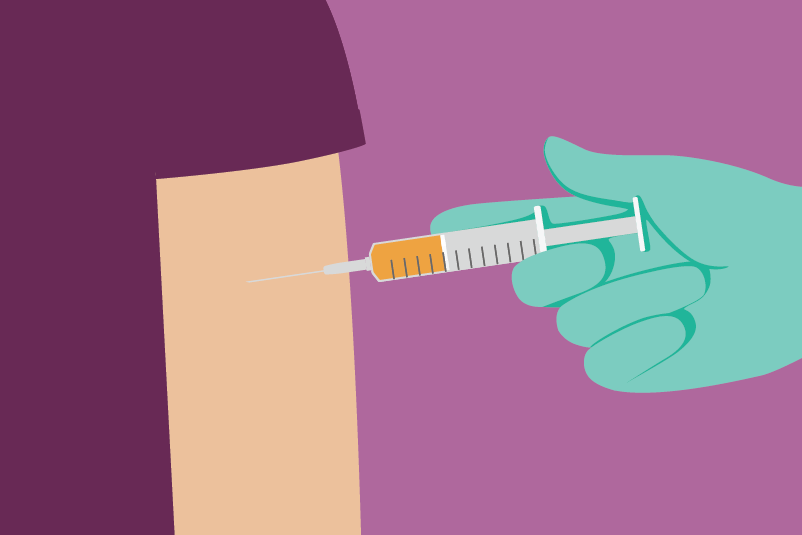#332 A Jab for Your CAD: Influenza vaccination for the prevention of cardiovascular events

Reading Tools for Practice Article can earn you MainPro+ Credits
Join NowAlready a CFPCLearn Member? Log in
- Five meta-analyses1-5 compared the effect of influenza vaccination to placebo/no vaccination on cardiovascular events (5-8 randomized controlled trials [RCTs], 4,211-12,029 patients, follow-up 1.5-12 months). Focusing on the most complete (results statistically significant unless otherwise stated):
- Secondary prevention:
- Influenza vaccination reduced the risk of all-cause mortality (relative risk reduction [RRR] 42%) and cardiovascular events (RRR 37%).1
- Largest, highest-quality, multi-country (mostly European) RCT6 compared one-time influenza vaccination to placebo in 2,532 participants ≤3 days after myocardial infarction. At 1 year:
- Death: 2.9% versus 4.9% with placebo.
- Cardiovascular events (death, myocardial infarction, stent thrombosis): 5.3% versus 7.2% with placebo.
- Local injection site reactions: ~5% absolute increase.
- Largest, highest-quality, multi-country (mostly European) RCT6 compared one-time influenza vaccination to placebo in 2,532 participants ≤3 days after myocardial infarction. At 1 year:
- Limitations: Cardiovascular benefit only seen in patients within <2 months of acute coronary syndrome (unclear benefit in chronic coronary artery disease) in subgroup analysis.2
- Influenza vaccination reduced the risk of all-cause mortality (relative risk reduction [RRR] 42%) and cardiovascular events (RRR 37%).1
- Other cardiovascular disease:7
- Influenza vaccine did not reduce death or cardiovascular events in 2-year RCT of 5,129 patients with heart failure when compared to placebo but reduced overall hospitalization (15% versus 18% with placebo).
- Primary prevention:3
- No difference in cardiovascular deaths based on 12 events in 2 RCTs.
- No other cardiovascular events reported.
- No difference in cardiovascular events between: Different vaccine types/dose;8 or timing (administration during myocardial infarction hospitalization or within 30 days of discharge).9
- Recent respiratory tract infections/influenza are associated with increased risk of cardiovascular events.10-11
- Guidelines recommend influenza vaccination for people with coronary disease.12
- ~40% of Canadian adults with a chronic condition receive influenza vaccination each year.13
- Influenza vaccine efficacy for secondary cardiovascular prevention is comparable to other preventive therapies in reducing recurrent cardiovascular events [examples: Acetylsalicylic acid and statins (RRR ~25%)].14,15















this article confirmed my understanding of flu vax benefit and CV risk from influenza illness
subgroup analysis which sometimes creates bias, however good message is still vaccinating post MI is still beneficial
great support for advising to immunize!
Influenza vaccine reduces major Cv events within first year after acute coronary syndrome
the benefit equates to giving clopidogrel after MI , wth less harms !